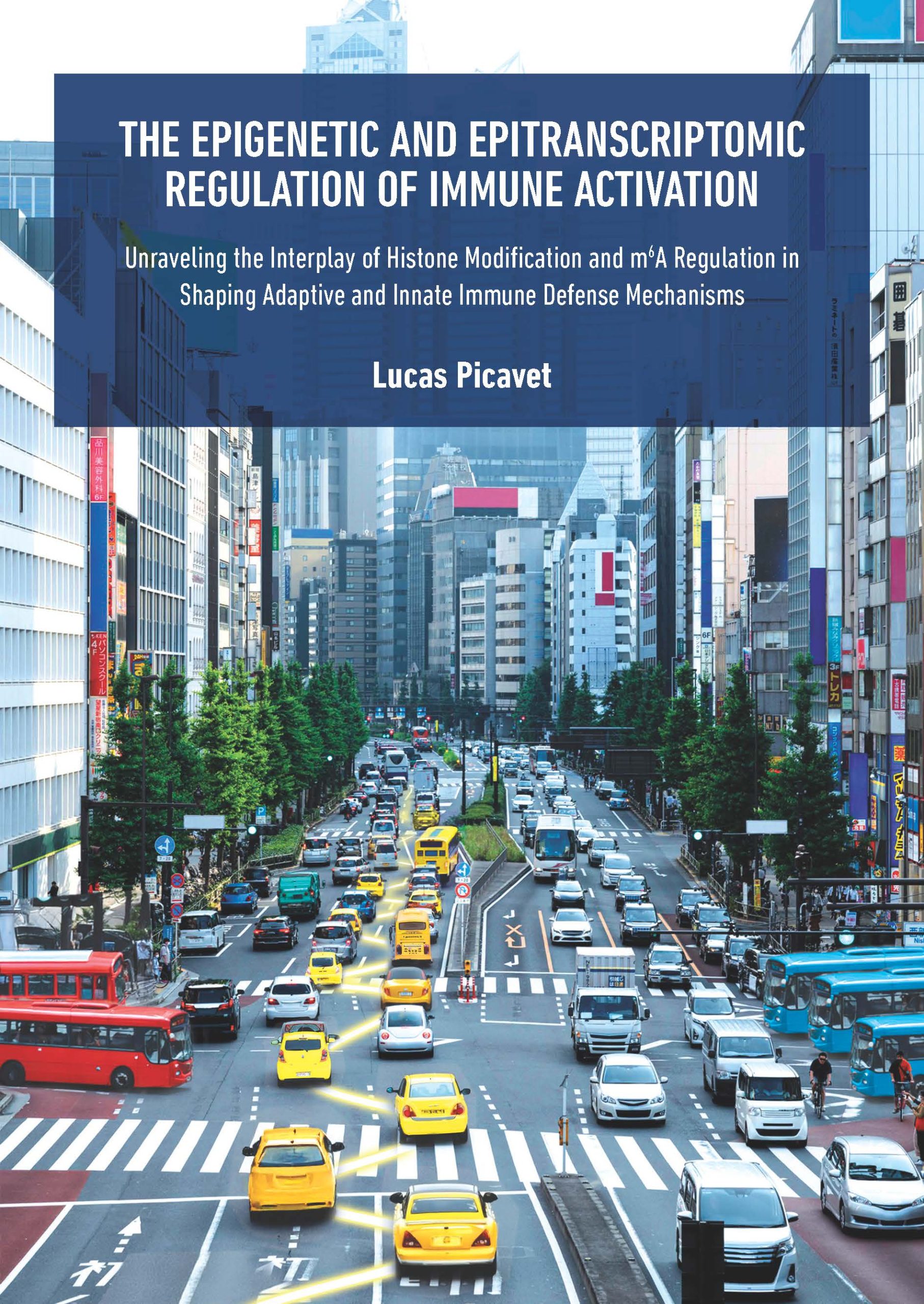The PhD research by Lucas Picavet, MSc (UMC Utrecht) examined the complex mechanisms that regulate gene expression in immune cells, with a focus on histone regulation and m6A post-transcriptional modification in both the innate and adaptive immune systems. He found that disruptions in these regulatory processes can lead to autoimmune diseases, infections and inflammation.
The immune system protects us from harmful pathogens such as bacteria, viruses and fungi. It consists of a network of cells that work together to defend the body, with monocytes and T cells playing important roles. Monocytes are part of the innate immune system, which responds quickly and non-specifically to threats. T cells, on the other hand, belong to the acquired immune system, which targets specific antigens and has a memory, allowing it to respond more quickly to repeated infections. During an immune response, immune cells release cytokines, proteins that signal other cells and promote inflammation. Although inflammation is essential for repairing damaged tissue, excessive cytokine production can lead to chronic inflammation, as in juvenile idiopathic arthritis (JIA), a condition that causes joint inflammation in children.
The immune system is complex and immune cell responses are regulated at different levels. For example, the genetic code in our DNA, which regulates the production of cytokines, can be modified by epigenetic mechanisms. One of these mechanisms involves the modification of histones, the proteins to which DNA is attached. These modifications affect how accessible DNA is for transcription, which is important for the immune response.
In his PhD dissertation, Lucas Picavet, MSc (Center for Translational Immunology, UMC Utrecht) examined the complex mechanisms that regulate gene expression in immune cells, with a focus on histone regulation and N-6-methyladenosine (m6A) post-transcriptional modification in both the innate and adaptive immune systems.
In his studies, Lucas examined the role of specific proteins in the activation of T cells. These proteins add acetyl groups to histones, making DNA more accessible for transcription of inflammatory genes. Blocking these proteins may inhibit the production of pro-inflammatory cytokines, potentially opening avenues for the development of therapies for conditions such as JIA. In addition, modification of mRNA, the messenger that carries genetic information to ribosomes for protein production, plays an important role in the immune system. A common modification on mRNA is m6A, which affects the stability and translation of mRNA. This process is dynamic and is modified by signals from the environment.
Activation of monocytes adds m6A on mRNA, which promotes the production of important inflammatory factors such as TNF. In JIA patients, a lower amount of FTO (a protein that removes m6A) is observed, which enhances the inflammatory response. Furthermore, it was shown that m6A modifications also affect RNA viruses such as respiratory syncytial virus (RSV), which affects the degree of infection.
This thesis provides new insights into how histone regulation and m6A modifications shape immune responses, offering promising targets for future therapeutic strategies in autoimmune conditions.
Lucas Picavet (1992, Velsen) defended his PhD thesis on February 13, 2025 at Utrecht University. The title of his thesis was “The Epigenetic and Epitranscriptomic Regulation of Immune Activation – Unraveling the Interplay of Histone Modification and m6A Regulation in Shaping Adaptive and Innate Immune Defense Mechanisms”. Supervisors were Jorg van Loosdregt, PhD (Center for Translational Immunology, UMC Utrecht) and Bas Vastert, MD PhD (Center for Translational Immunology and Department of Rheumatology and Clinical Immunology, UMC Utrecht). In January 2025, Lucas started as a scientist at Gyes BV, an Utrecht-based biotech start-up leveraging a new antibody platform to target cancer.

